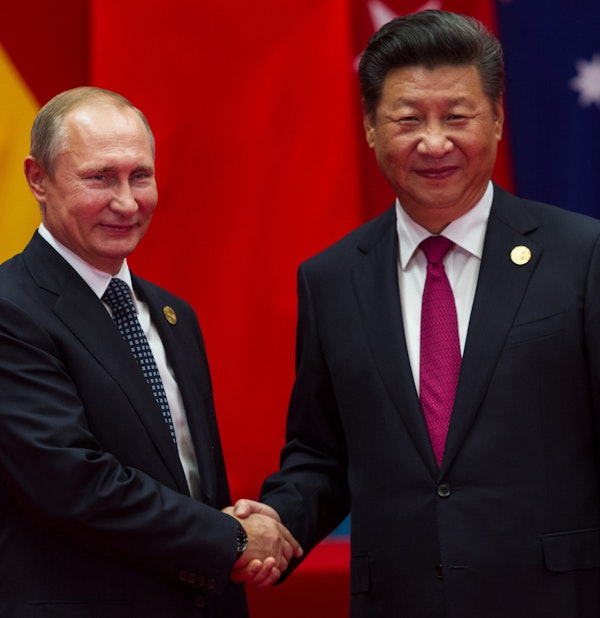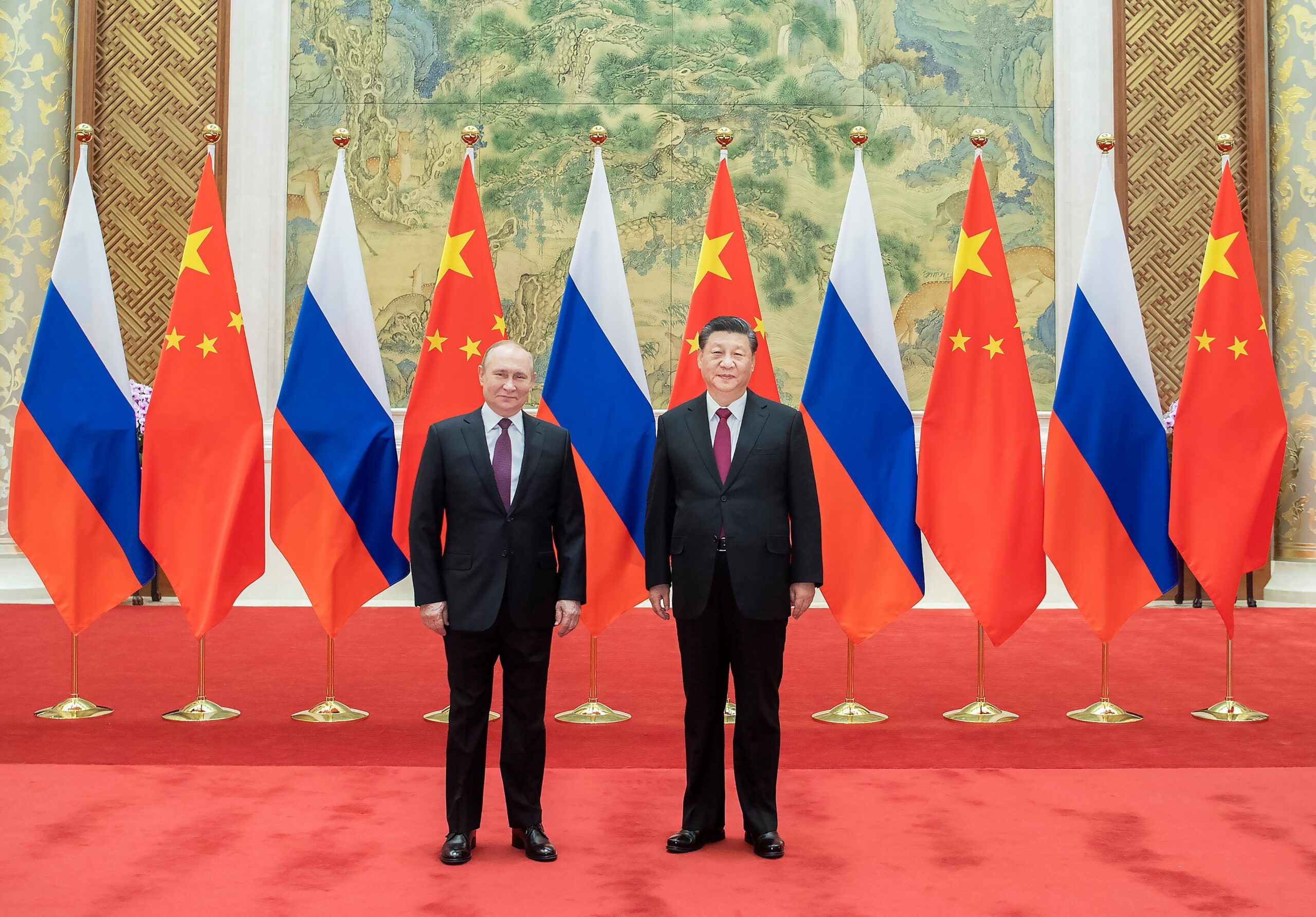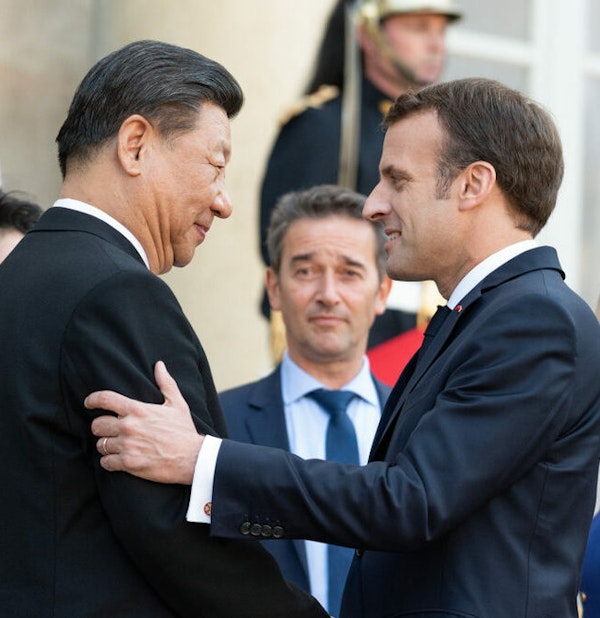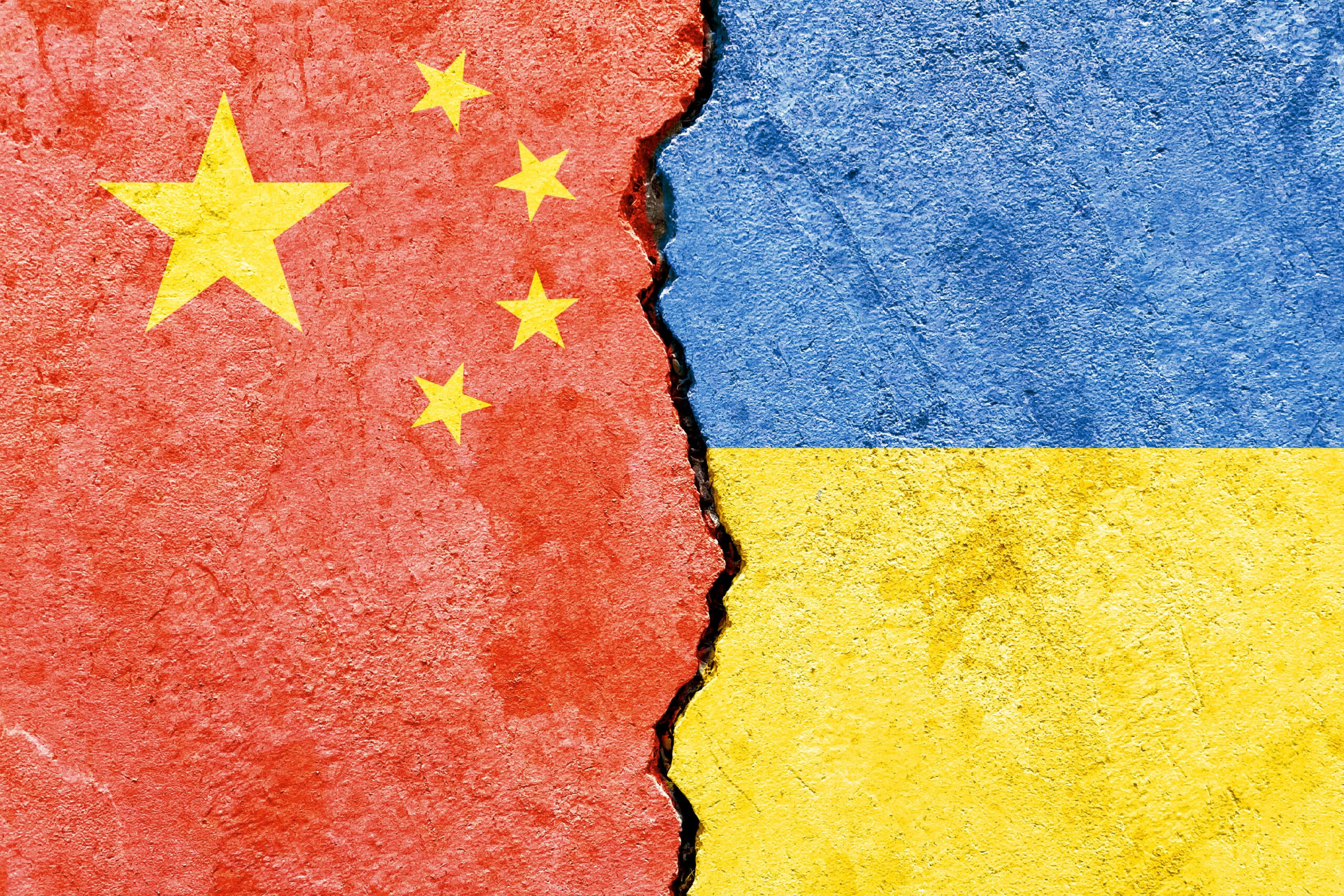Alexander Gabuev
Putin’s war on Ukraine has forced him to depend on China like never before. Beijing is happy to help – and to take advantage of its new power.

Thanks to the war in Ukraine, Russia and China are now closer allies than at any time in the two countries’ modern history. As Chinese President Xi Jinping’s state visit to Moscow in March highlighted, Russian President Vladimir Putin has found a strong partner in his declared struggle against the West – such a strong partner, in fact, that Russia has been relegated to junior status in the relationship. Yet that is a price President Putin is willing to pay in order to secure access to the resources he needs to sustain his regime and his unprovoked aggression in Ukraine. The relationship also suits President Xi well. As he prepares China for a long-term conflict with the United States and its allies, Russia offers him assets he can’t get anywhere else: modern weapons, cheap oil and gas, support in the UN Security Council, and the ability to distract the United States by causing trouble in many corners of the world.
Although the Ukraine war has intensified their bond, the relationship between Moscow and Beijing has, in fact, been deepening ever since the mid-1980s, when Soviet Premier Mikhail Gorbachev and Chinese leader Deng Xiaoping patched up their countries’ schism – a contest for leadership of the global communist movement that had started after Josef Stalin’s death in 1953 – and began working toward a new modus vivendi. Over the course of the 1990s, Moscow and Beijing made steady progress resolving their long-standing differences, such as an unresolved border dispute. Then, in 1995, China began importing oil and, later on, tapping into Siberia’s hydrocarbon resources – establishing a powerful economic bond between a rapidly developing China, with its new surplus of capital, and a resource-rich Russia. Further uniting both governments was their growing concern over U.S.-led democracy promotion and a shared desire to end America’s unipolar moment.
Friendship with Limits: Putin’s War and the China-Russia Partnership

In 2020, Bobo Lo, Non-Resident Fellow at the Lowy Institute in Australia, examined the Sino-Russian partnership and the challenges the partnership presents for Western decision-makers.
For all its benefits to China, the war in Ukraine has put Beijing in an awkward position. On one hand, it gets too much from Russia to consider throwing President Putin under the bus. At the same time, however, its trade ties with the West remain critical to the health of China’s economy despite the mounting tensions with the United States. As a result, Beijing initially sought to follow (or appear to follow) a balanced path, criticizing Western sanctions but following them anyway, not recognizing the Russian annexation of Crimea or of newly seized Ukrainian territory but also refusing to denounce Moscow’s aggression – and all the while helping itself to Russian natural resources at significant discounts. In 2022, trade between the two countries grew by 30%, to $190 billion. Then came President Xi’s March visit to Moscow, however, which signaled a willingness to abandon what the China scholar Evan Feigenbaum has called the “Beijing straddle.” Suddenly, Middle Kingdom seems to have abandoned the middle path.
A very public embrace
Preparations for President Xi’s three-day visit to Russia started last year and were conducted clandestinely. President Putin’s invitation was first passed to President Xi on Dec. 21 in Beijing by Dmitry Medvedev – the former Russian President and Prime Minister who now serves as Deputy Chairman of the country’s Security Council – and was reaffirmed during a Xi-Putin video call on Dec. 30. In late February, Wang Yi, a Politburo member and President Xi’s top foreign policy adviser, visited Moscow to hammer out the remaining details. In spite of such careful preparations, however, the visit wasn’t officially confirmed by the Chinese government until the very last moment.
SUBSCRIBE
Subscribe now to The Catalyst for smart, solutions-oriented discussions of key U.S. and global issues and events.
 French President Emmanuel Macron welcoming President Xi Jinping in March 2018. (Frederic Legrand via Shutterstock)
French President Emmanuel Macron welcoming President Xi Jinping in March 2018. (Frederic Legrand via Shutterstock)The reason for China’s unusual reticence (President Xi’s overseas trips are normally announced well in advance) was simple: Few heads of state are now as toxic as President Putin. That helps explain why Indian Prime Minister Narendra Modi canceled a scheduled visit to Russia in 2022, opting for a phone call instead. New Delhi has refused to impose sanctions on Moscow and has used the crisis to ramp up imports of Russian oil at a discount, but Modi evidently decided that a visit to the country was a step too far. Deepening Putin’s image problem, on the same day that Beijing finally announced President Xi’s trip, the International Criminal Court issued an arrest warrant for the Russian leader.
Unlike Modi, however, Xi proceeded with his visit. Chinese policymakers such as Qin Gang, the newly appointed Foreign Minister, are increasingly blunt in explaining why Beijing has abandoned its former caution: They feel that Russia is increasingly important if China is going to succeed in countering an increasingly hostile United States, which they believe is determined to limit China’s rise. President Xi’s decision to ignore the bad optics and visit Moscow made the message clear: China sees many benefits in its relationship with Russia and will keep building those ties at the highest level.
That doesn’t mean Beijing no longer worries about the costs of the relationship, however. Indeed, China’s recently issued peace plan for Ukraine represents President Xi’s attempt to deflect the growing criticism from Europe and the United States over China’s support for Russia. China’s position paper on the subject, released on Feb. 24 – the one-year anniversary of Russia’s invasion of Ukraine – rehearsed many of Beijing’s standard talking points, including the need to respect territorial integrity and China’s opposition to unilateral sanctions. Because Beijing understands that, at this point, neither Kyiv nor Moscow is interested in a peaceful resolution of the conflict, the document lacked any specific details on how to address the real issues separating Russia and Ukraine, such as what to do about war crimes committed during the fighting. Beijing is clearly not interested in real diplomacy; what it wants instead is a pretext to justify its high-level engagement with Russia.
China sees many benefits in its relationship with Russia and will keep building those ties at the highest level.
Despite its obvious lack of substance, China’s peace proposal has nevertheless scored it praise from numerous Western leaders – exactly what Beijing was hoping for. On March 23, Josep Borrell, the European Union’s top diplomat, said that President Xi’s visit to Moscow had made the world safer by helping to reduce the risk of nuclear war. A few weeks later, China’s efforts received more applause when French President Emmanuel Macron traveled to Beijing and vowed to work with China to stop the war, and then again when Brazilian President Luiz Inácio Lula da Silva also visited, endorsed President Xi’s proposal, and announced that Brazil is ready to join a group of like-minded countries to push for peace in Ukraine. President Xi’s outreach to Ukrainian President Volodymyr Zelenskyy on April 26 – the first phone call between the two leaders since Russia invaded last year – further helped Beijing restore its reputation, despite the fact that the words “Russia” and “war” were not even mentioned in the official Chinese readout of the call.
Xi called Zelensky: What does it mean for the Russia-Ukraine War?

Igor Khrestin, the Bradford M. Freeman Managing Director of Global Policy at the Bush Center, examines China’s role in Russia’s war against Ukraine, and the relationship between China and Ukraine.
None of these maneuvers, however, should distract from what’s truly important: the substance of the quiet but ongoing negotiations between President Putin and President Xi. For the first time in the history of the countries’ bilateral relations, Russia appears to be ready to accept China’s rise to the status of a global superpower and the only true peer competitor of the United States, Russia’s arch nemesis. The Kremlin clearly thinks that the enemy of its enemy is its friend and so is now ready to do more for China than it has at any point in Russia’s post-Soviet history, be it opening its market to Chinese goods, granting China preferential access to Russia’s natural resources, or sharing Moscow’s most advanced weapons designs with Beijing. Although Russia and China are unlikely to establish a formal alliance anytime soon – since Beijing is not interested in giving Russia any legal guarantees – the emerging Sino-Russian axis will have global implications for years to come, and the West must start focusing on its long-term implications.
No comments:
Post a Comment